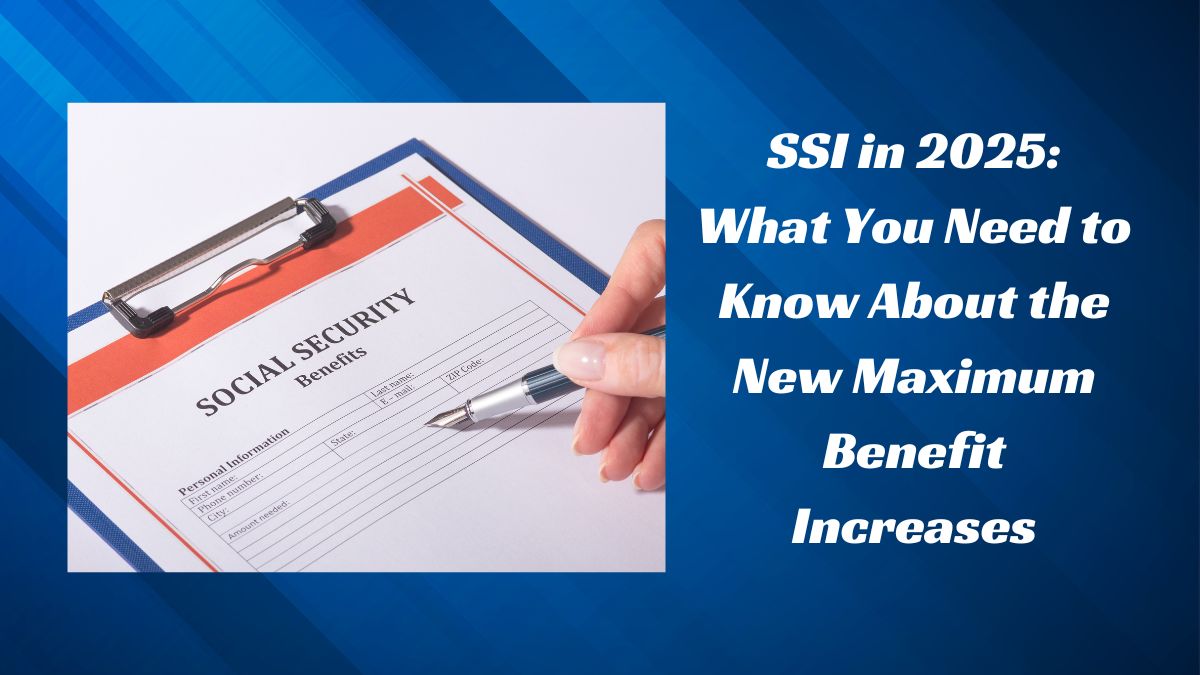SSI is an important program for many Americans who have money problems because of aging, disability, or blindness. Managed by the Social Security Administration, SSI provides monthly payments to individuals and couples with specific qualifications.
With the Cost of Living Adjustment (COLA) set for 2025, significant increases in SSI payments are on the horizon, offering much-needed financial relief to recipients.
These updates raise important questions regarding eligibility, payment calculations, and the impact on beneficiaries’ income. Understanding these changes is essential for accurate budgeting in the coming years.
2025 Maximum SSI Payments

Starting in January 2025, a 2.5% COLA adjustment will increase monthly SSI payments. Individuals who qualify for individual SSI can receive up to $967 per month, while qualifying couples may get a maximum of $1,450. This marks an increase from 2024’s maximum payments, which were $943 for individuals and $1,415 for couples.
The COLA is recalculated annually to account for inflation, ensuring beneficiaries maintain their purchasing power over time. This adjustment is crucial for those relying on SSI to cope with rising costs in housing, food, and healthcare.
Eligibility and Factors Affecting SSI Payments
Not all recipients will receive the maximum SSI amount in 2025. Several factors can influence the actual monthly payment, including:
- Income levels: Any additional income you receive could reduce your SSI payments.
- Living situation: Where and whether you live alone or with others can impact the amount.
- State supplements: Some states offer additional funds, potentially increasing the total SSI payments for residents.
Individuals must meet strict financial requirements to qualify for SSI. The program is designed for people with limited income, and higher earnings can lower the monthly benefit. Additionally, some states offer supplemental payments to the federal amount, which means recipients in those states might receive more than the federal maximum.
Eligibility Criteria:
- Age: Must be 65 years or older or have a qualifying disability.
- Resources: Limited financial resources and income are essential to qualify.
Recipients should note that SSI payments are meant to cover their basic needs for example housing and food. Following the program’s guidelines is essential to avoid losing benefits due to unreported income or other factors that could impact eligibility.
Combining SSI with Social Security Retirement Benefits

Yes, receiving both Social Security retirement benefits and SSI payments is possible, but there are crucial factors to consider. Since SSI is intended for individuals with limited income, retirement benefits could affect the total SSI amount you are eligible to receive. The Social Security Administration considers your entire income, including retirement benefits, to determine if you still qualify for SSI.
Key Considerations:
- Means-tested program: SSI is based on financial need, so if your monthly retirement income exceeds specific limits, your SSI benefits could be reduced or eliminated.
- Total income: If your combined income from retirement and SSI remains low, you may still receive some SSI benefits.
It is recommended that you consult with the Social Security Administration before applying for both benefits to ensure that you understand how your payments might be affected. Keeping detailed records of your earnings is critical to maintaining eligibility and compliance with program regulations.
FAQs
The COLA adjustment of 2.5% in 2025 will raise the maximum SSI payments to $967 for individuals and $1,450 for couples.
Your income, living situation, and the state you reside in can affect the amount of SSI you receive. Higher income levels or living with others may lower your payments.
Yes, but the Social Security Administration will assess your total income, including retirement benefits, to determine if you still qualify for SSI.
No, some states provide supplemental payments in addition to the federal SSI amount, so residents in certain states may receive more than the federal maximum.
To avoid losing benefits, ensure that you report all income and comply with SSI program regulations. Keeping accurate records of your earnings is essential for maintaining eligibility.




